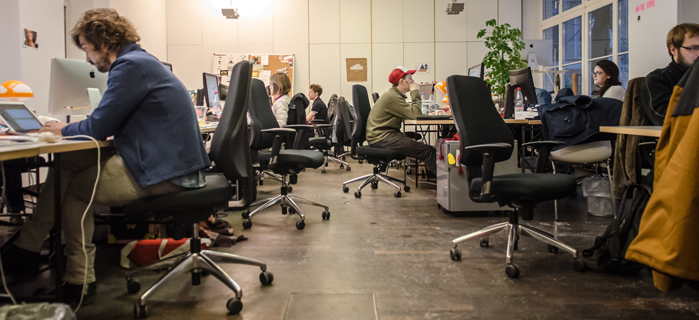By Olivia Goldstein
The idea for Leila Janah's startup happened on her first trip to Africa as a volunteer English teacher, where she met young women who couldn't find jobs, but were eager to work.
Determined to provide job opportunities to women in some of the poorest regions in the world, Leila started Samasource. The company now provides computer-based projects to over 6,500 people across five countries, such as Ghana and India, where women often struggle to find work.
Innovation taking an idea beyond the lab and into the real world or global market ripples across the entire ecosystem of a startup, from its entrepreneur to its host city and country to the world. Why wait to think globally when you and your startup have the power to change the world?

The Entrepreneur
Anyone with international experience can tell you about the indispensable skills acquired from traveling and living abroad many of which coincide with the same qualities attributed to successful entrepreneurs.
In a recent article published in the Harvard Business Review, co-founder and CEO Gillian Morris of international flight app, Hitlist credited her experience in northern Badakhshan, a remote and autonomous region bordering Afghanistan and Pakistan, as essential in preparing her to thrive in the startup world.
International experience removes an individual from their comfort zone and challenges them to adapt and develop creative solutions in some of the most unpredictable and unconventional situations; not unlike the life of a startup where working with limited resources in a new environment challenges founders to develop creative solutions.
Even startups like Uber and Remote Year offer "workcation" options for their employees to telework from around the world. It's because they recognize the value and market opportunity of international experience.

The Startup
Startups should consider the global market early on if for no other reason than to shape a better product or business model. A company can learn how other startups or local ecosystems are tackling the same issues while building their network perhaps even leading to diversifying their team, developing partnerships outside of traditional outsourcing, and expanding to new markets.
Airbnb went from a local startup founded by several engineers trying to make ends meet in San Francisco to an international company providing unique accommodations in over 190 countries.
Within the last 10 years, it has become increasingly achievable for the tech industry to scale technology across borders. This alone is reason enough for startups to think globally, not just locally.

The City and Country
From the perspective of a startup's city or country, startups stimulate local and regional economic development, create high-quality jobs, and cultivate a country's talent pool all while accelerating competitiveness.
For developing countries, opening their economies to startups can attract foreign investment. Startup Chile offers entrepreneurs a special visa along with monetary compensation and support for international startups to move their company to Chile for one year in an effort to grow their country's startup ecosystem.
Many local economic development agencies and governments are building programs and introducing policies designed to grow and attract talented startups and entrepreneurs. For example, 13 countries now offer entrepreneur visas to draw talented innovators. Accelerators and startup competitions, such as TechStars or SeedStars World, recognize that smart startups with market-ready products are found not just in Silicon Valley, but also around the world.

The World
Connecting startups from different countries increases the transnational flow of information and ideas leading to more competitive products and global economic growth.
Through international collaboration, startups can address and develop solutions to some of the most challenging global issues of our time: from health and education to energy and natural resources, or even social justice and conflict prevention.
Fostering entrepreneurial skills in developing countries can also help combat soaring youth unemployment and empower communities to drive economic and social change.
When startups think globally, international entrepreneurship transcends political boundaries and facilitates larger relationships between countries, resonating beyond traditional state relations.
About the Author Olivia is the Program Associate for the Innovation and Capacity-Building team at American Councils. She works to increase innovation, research, and technology commercialization between the US and Eurasian countries. She assists startups and other innovative initiatives to explore potential collaborations with US partners through programs such as the US Russia Innovation Corridor (USRIC). Olivia is a Russian speaker and frequently writes on global startup and entrepreneurship trends.
Olivia is the Program Associate for the Innovation and Capacity-Building team at American Councils. She works to increase innovation, research, and technology commercialization between the US and Eurasian countries. She assists startups and other innovative initiatives to explore potential collaborations with US partners through programs such as the US Russia Innovation Corridor (USRIC). Olivia is a Russian speaker and frequently writes on global startup and entrepreneurship trends.

